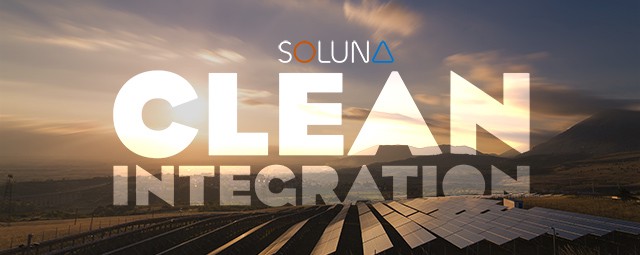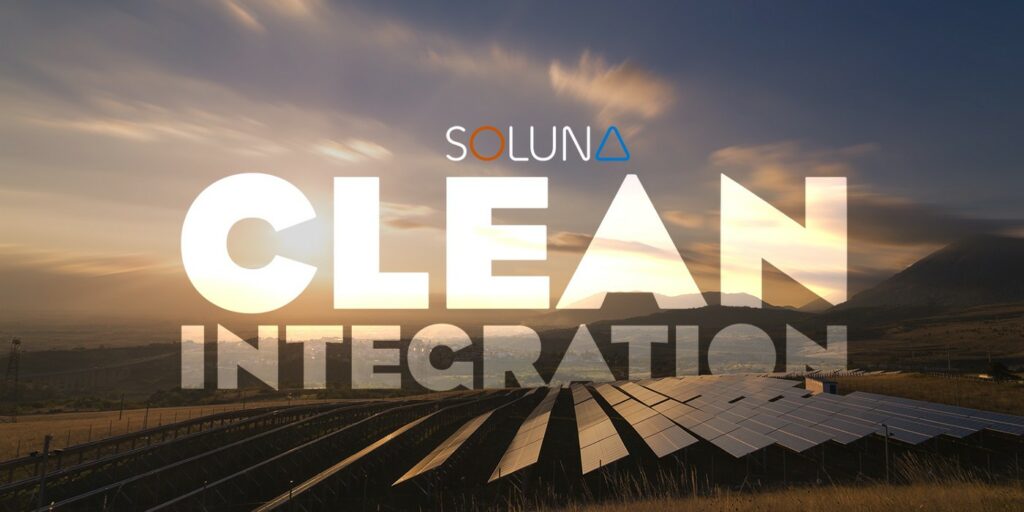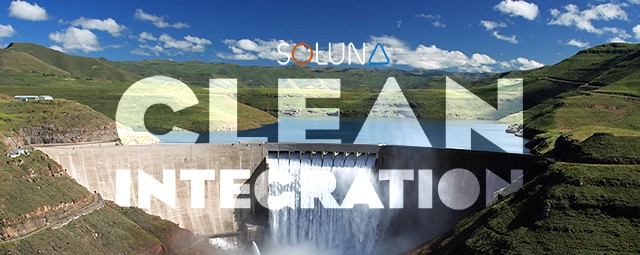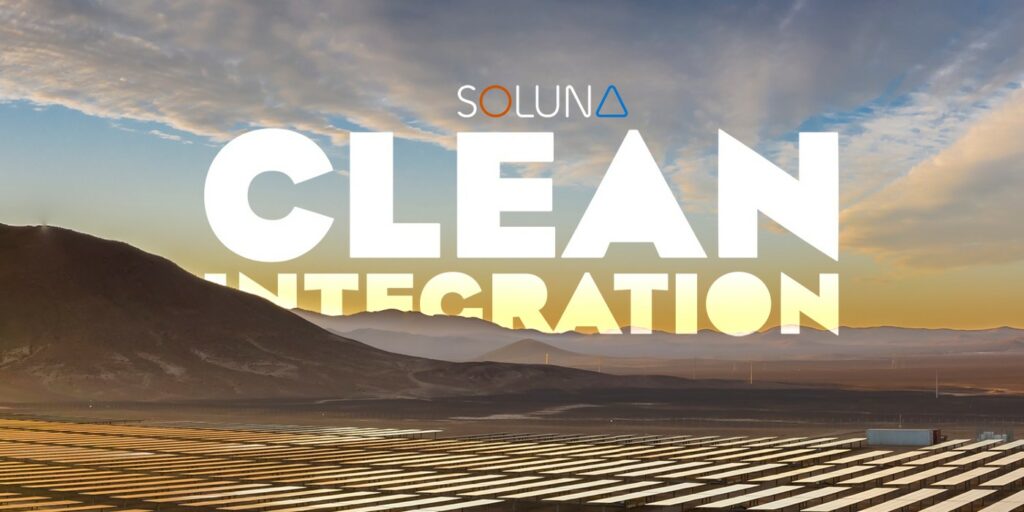Listen now on Apple | Spotify | SimpleCast
There is an existing view that Bitcoin is a dirty coin and it’s not sustainable.
Well, the team at Soluna isn’t the only one here to tell you that this view is wrong.
Bitcoin’s energy consumption is a feature, not a bug.
This is what Soluna Computing CEO John Belizaire testified before Congress in January 2022 when he had the opportunity to make the case for crypto mining as a catalyst for renewable energy development.
Senior Policy Manager at the Blockchain Association, Lindsey Kelleher, joins John on Soluna’s Clean Integration Podcast to discuss the ongoing policy debate around cryptocurrency mining.
The Blockchain Association is a member-led, member-driven organization dedicated to improving the public policy environment for crypto networks. Prior to joining the Blockchain Association, Lindsey worked with Teach for America in Oakland.
(This transcript has been edited and condensed for print.)
[1:45] Before we jump into the debate around Bitcoin and blockchain, let’s start with you. How did you get started?
Lindsey Kelleher: I originally started as a teacher at Teach for America. I wanted to choose a job that made an impact as soon as I got out of college. I quickly realized that making an impact is hard with zero training, and ultimately, when COVID hit, I decided to change directions.
In between my junior and senior years of college, I hiked across Costa Rica. We would stay in small, rural villages, and there was actually a Bitcoin ATM in one of the little tiendas that we stopped at to get some food. It was fascinating to me that this advanced technology was somewhere where they don’t even have internet connection.
That sparked my interest. Then I was looking for a job after I left teaching and my friend who I went to high school with was responding to a comment letter on behalf of the Blockchain Association and he asked to help me edit the letter because he remembered that I was a decent writer. I caught the crypto bug, ended up interning at the Blockchain Association, and have been in crypto and at the association ever since.
John Belizaire: Wow. That’s a great story.
Lindsey Kelleher: It’s a very roundabout way, but I ended up falling in love.
[5:09] So, I want to talk more about the Blockchain Association. You talk about increasing transparency in the blockchain and cryptocurrency industries. Tell us some of the ways you do that through the organization.
Lindsey Kelleher: One of the biggest issues that we are finding on the ground in Washington is that there is a lack of education. One thing that our organization does is we bring our members to the hill and we try to educate different members of Congress about what we’re doing. What are the risks, what are the benefits, and why is it so important to create regulation that is tailored to the technology?
We’re also working on creating a large database of information on our website that we’re hoping users will be able to access to learn anything that they might need to know about blockchain and crypto.
[7:01] Tell me about your membership, who are your members?
Lindsey Kelleher: We have a broad array of members. We have hardware wallets, we have miners, we have venture capital firms that are supporting the ecosystem, and we have centralized exchanges.
One of the things that set us apart is that we require members to be crypto-native organizations, where crypto isn’t just a side project but their focus.
[8:16] There’s a quote from an article you wrote in December of last year that I want to read. It says the network’s energy consumption is easy to criticize for two reasons. First, it’s easy to quantify given the open nature of the network, and second, the scope of the benefits offered by Bitcoin is not yet universally acknowledged. Can you walk us through from your perspective, those two grounds for this current narrative that’s out there?
Lindsey Kelleher: One of the biggest features of blockchain is its transparency. It’s a tool that law enforcement can use, but it’s also a way that miners can be held accountable. A lot of their energy mix is posted, and their percentage of hash rate is quantifiable. And while the energy use of mining is pretty much accessible and miners are being held accountable for their energy use, traditional finance and other industries aren’t held to that same standard.
Also, the advantages of Bitcoin are not universally accepted yet. I think that’s due to a lack of education. People don’t know what Bitcoin is, and so they think all of the energy going into it is a complete waste. Yet that energy is being used to shore up and make secure millions of dollars around the world. It’s communities that have been traditionally locked out of the financial system that is primarily using this new technology.
John Belizaire: We agree with that here at Soluna. We believe that globally, people don’t have a positive place in their minds for Bitcoin and crypto yet, they’re still getting their heads around it. There are multiples of billions of dollars being stored in this asset.
Here in the west, we take for granted that monetary systems and the sovereign can be trusted, we’re not going to be heavily diluted by massive inflation such that your wealth and savings can be jeopardized. But this isn’t the case everywhere. People around the world are beginning to realize that this technology can be a solution to that.
[13:06] There seems to be a tremendous amount of momentum being built around the narratives that Bitcoin is bad or Bitcoin is dirty. What do you think is at stake as these narratives gain popularity?
Lindsey Kelleher: It’s a pivotal point for the industry. The industry is so nascent and the technology is still developing, so to choose a winner or a loser, even at the consensus mechanism level, could potentially leave us five months down the line with completely obsolete technology. I think it’s really important to remain technology-neutral and not kill things before they can grow to their full potential.
John Belizaire: Renewable energy started out with a small series of conferences, some geeks walking around with propellers and propeller caps and talking about how they’re going to shape the clean future. Now, it is a global multibillion-dollar business that has a lot of wind at its back. We talk about the fact that if crypto becomes integrated with renewable energy, it could also become very mainstream.
[15:52] What’s your take on the mainstream acceptance or adoption of Bitcoin and the next steps that might be required to make that happen?
Lindsey Kelleher: As the United States is transitioning to a more renewable energy grid, Bitcoin miners can play a major role in that transition. Miners have a profound opportunity now to start partnering with renewable energy producers and find ways that they can help solve some of the issues that these transitioning grids are experiencing.
John Belizaire: That’s exactly how we see it too. When it becomes a necessary technology to make the future of renewable energy happen, suddenly it becomes an important aspect of our society, right?
Lindsey Kelleher: If you look at ERCOT, the independent power grid of Texas, you’ve got their interim CEO right now applauding Bitcoin mining because of its flexibility as a load resource and the resilience it brings to these transitioning grids. The renewable transition can be facilitated by Bitcoin mining. If Bitcoin miners can associate themselves with energy producers and build themselves into the core infrastructure of the renewable energy grid, that will really cement their relevance in the United States and globally as well.
[18:29] What role should policymakers be playing in helping to shape the future of blockchain and cryptocurrency?
Lindsey Kelleher: I think policymakers need to take a light touch. As I said, this is a nascent technology. PoS and PoW aren’t the only consensus mechanisms in the ecosystem, either, there are tons of others. It’s critical that the technology is given the opportunity to grow and develop without having regulatory infringement that chases innovation away.
At the same time, policymakers can try to create standards around the renewable mix that miners use. They can craft what they want that energy makeup to look like. There’s a lot of appetite within the mining community to move towards renewable energy. Not only because it’s good for the environment, but also because renewable energy is cheap right now.
John Belizaire: Last year, China banned Bitcoin, and kicked everybody out. Most people barely got out with their equipment and it actually helped to reshape the landscape in the United States. The United States has almost become the center of the universe, if you will, for Bitcoin and Bitcoin mining. A lot of the hash rate has moved here. Some of the more reputable firms are now based here. There are now several public companies, including ours, that are backed by serious capital to invest in this industry.
[20:24] What’s your take on how policymakers should view this influx of miners into the US?
Lindsey Kelleher: Policymakers should view it as an opportunity to ensure that the Bitcoin mining network is actually green. In conjunction with the crackdown on mining in China, there was a noticeable shift of miners to Kazakhstan, which is actually a coal-heavy country. But then when Kazakhstan started cracking down on miners too, they all fled to the United States or other areas where mining isn’t outlawed.
By inviting miners into the United States and incentivizing them to come here, the US can ensure that the mining that’s happening here is done so in an environmentally responsible way.
John Belizaire: Part of the reason the industry has a bad name is that it started in places that use a lot of fossil fuel — China, Russia, Kazakhstan. Having the industry based in the US now puts pressure on the industry to grow up to some extent, be more conscious of its sustainability, and follow rule of law. Having its base here will ultimately be good for the industry, I believe.
Lindsey Kelleher: According to the Bitcoin Mining Council, by the end of 2022 it’s expected that 40- 50% of the Bitcoin mining network’s hash rate is going to be publicly traded, which means they will be held to the environmental standards of public equities markets, which is a big win. It’ll not only bring transparency to the energy mix of these miners, but also hold them publicly accountable to be environmentally conscious.
[23:38] What are some of the coolest things you’ve done in terms of educational content you’ve put out?
Lindsey Kelleher: The coolest thing for me, and the moment where I learned the most, was when I worked with my colleague Miller Whitehouse-Levine to create a report on self-hosted or un-hosted wallets. Then-Secretary Mnuchin put out a self-hosted wallet rule that essentially attempted to curb the amount of activity that self-hosted wallets were allowed to do in the United States. We actually crafted this report prior to that rule-making coming out. We were looking at the ways in which self-hosted wallets can help the ecosystem, but also the ways in which policymakers might try to limit their ability to operate in the United States.
We went around to different congressional offices when the Mnuchin ruling came out and used the report to defend why self-hosted wallets are important. It felt very cool to see the direct impact of my writing.
[27:48] I imagine you do lots of reading, right? You’ve got to stay up to speed on all the changes and things that are happening in the space, potential law changes, etc. Where do you get your news and insights from?
Lindsey Kelleher: Twitter, I hate to say it, but crypto Twitter is such a robust source of material. Some of it is ridiculous and some is super helpful. I also love Coin Centers. They have an educational blog and they really do a great job of not only breaking down the content into intermediate beginner, and advanced levels of understanding, but they have really, really great writers that level down the content to make it understandable for the average person who’s not super into crypto.
John Belizaire: Thanks for coming on the show and giving us a look at the work that you’re doing and all of the interesting challenges and opportunities created by that work.
Lindsey Kelleher: This was such a pleasure. Thank you so much for having me.




